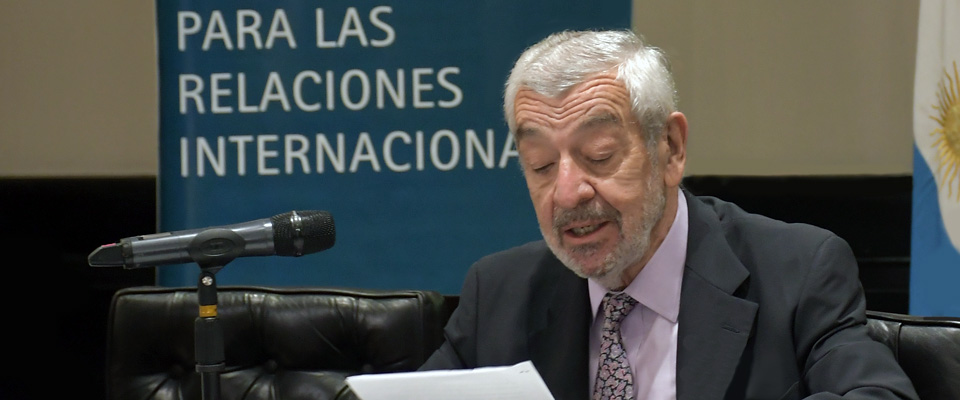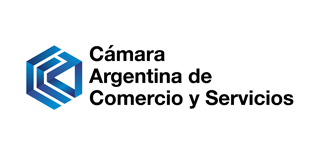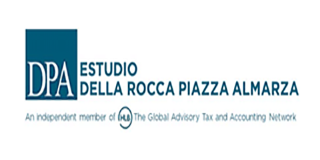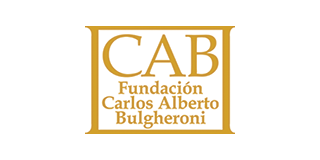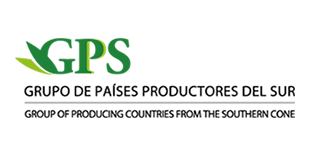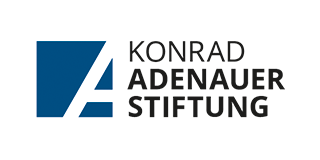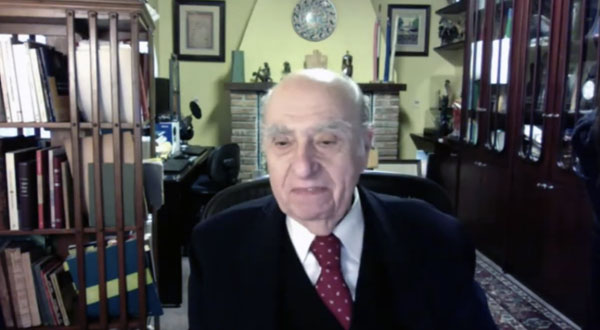
August 13, 2020
Academic Meeting organized by CARI's Cultural Committee with the support of the Ortega y Gasset Foundation in Argentina
By Tomás A. Seré, Volunteer for the Communication Division
Isabella Rocco. Translation of: link
The third meeting of the "Will democracies survive?" series, organized by CARI's Cultural Committee with the support of the Ortega y Gasset Foundation in Argentina, starred former Uruguayan President Julio María Sanguinetti, who spoke virtually in front of more than a hundred invited guests on August 13th, 2020.
In this setting, and with the presence of CARI President Adalberto Rodríguez Giavarini, Sanguinetti developed a rich analysis of the current global crisis, the lack of reconstructive leadership, and the democratic battle that must take place. It also focused on the weakening of traditional parties, the importance of institutions, and the essential role of the United States at the global level.
To this end, the current Senator of the Republic and Secretary-General of the Colorado Party highlighted two fundamental consequences that the future of the pandemic produced: the acceleration of preexisting trends and the uncovering of the weaknesses that were already present previously. Thus, while the digital field advanced five years in a few mere weeks, the lack of governance around the planet because even more evident. In this regard, Sanguinetti stated that "There's no international leadership that stands out that reflects the ideas of freedom, human rights, and free commerce that represented democracy for so long".
In this context, the former Minister of Education and Culture and Commerce and Industry was concerned about Donald Trump's weakness in handling the situation. "America is not in charge nowadays. It's a world apart, very far from the leadership that it managed to demonstrate in other reconstructions," Sanguinetti affirmed. He then added: "A possible change in government is very good to the extent that it provides predictability. What Joe Biden can bring is normal conduct, the United States doing what is expected, and not the extravagances of vagueness and permanent scourge." Indeed, establishing clear parameters is the essential basis of trust in generating agreements and negotiations that enable the world to move forward.
Regarding Latin America, Sanguinetti explained that what is currently going on is but a mere reflection of what happened at the alliance level over the past few years. In this way, we see an "invertebrate" continent in which there are only failures in project consolidation and no harmony between Argentina and Brazil. In fact, according to the former Uruguayan President, the clearest demonstration of this phenomenon is reflected by the conflict over the next presidency for the Interamerican Development Bank (BID): "From Latin America, we were not even able to bring together a solid candidate for the BID. Today we depend solely on individual efforts, which I hope will build bridges to better paths and relations", he reflected.
Democracy, meanwhile, according to the former representative, also suffers the consequences of this impact. A democracy that, moreover, already brought about strong disbelief with a great smear of parliaments and a weakening of political parties. The siege, however, does not arise from the threat of another possible order, but from its own illegitimacy. It's evident to Sanguinetti that the remedy is in the very strengthening of democratic institutions. Under this logic, permanent vigilance by governors, the parties, the media, and centers of thought will be essential. That is, those who keep the need for discussion alive and who should not let emergency powers be used for abusive measures that go beyond their proper assignment.
Sanguinetti also indicated that generally, populists currents settle on and take advantage of the weakening of more serious and traditional parties. The task is, therefore, protecting democratic weapons: "The key is the preservation of institutions. We see it with a very clear example: Trump is a populist, but the United States is not fully populist—and it's not going to be because the contention of the rule of law is strong. The task is to return to battle for the preservation of these values, although I have no doubt that these institutions of democratic states and free-market economies will prevail," the Senator said.
In short, from Sanguinetti's point of view, we're dealing with a world that must move forward with the hope of a global market, foreign trade, and healthy businesses. But that, in turn, comes with vast concerns and above all, requires compromise, since no one has the right to defect. With this criterion, the former Uruguayan President made the reminder to never forget that "things are as we construct them".
